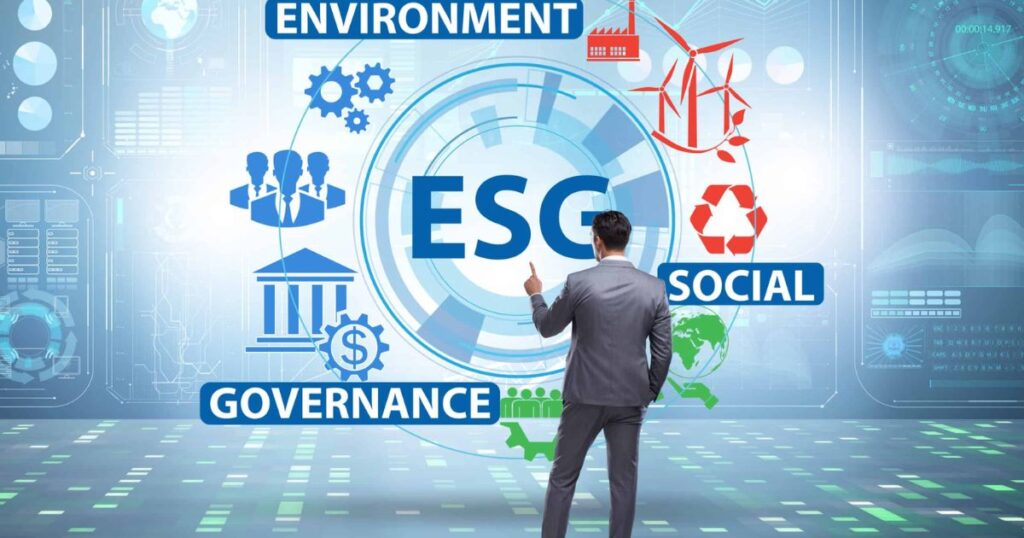As businesses and governments face growing pressure to address climate change and promote social responsibility, ESG regulation has gained prominence. This article explores the key aspects of ESG regulation in 2024.
We’ll discuss what ESG regulations are, their growth, and the specific rules you need to know this year. Understanding these regulations is crucial for companies and investors aiming to meet the evolving sustainability rules and governance standards.
What Are ESG Regulations?
ESG regulations focus on environmental, social, and governance issues. They guide companies on how to operate responsibly while considering their impact on the planet and society.
These regulations are designed to enhance transparency, requiring businesses to disclose their environmental disclosure efforts and sustainability practices. Companies that comply with these regulations often see increased investor interest and improved reputations.In recent years, ESG legislation has become a priority worldwide.
Governments and regulators are pushing for stricter guidelines. This trend aims to ensure that companies are not only profitable but also sustainable and responsible. As a result, ESG compliance is no longer optional. Companies must adapt to these changes to thrive in today’s market.
The Growth of ESG Regulations
The growth of ESG regulations has been significant over the last decade. More investors are prioritizing sustainability when making decisions. They want to invest in companies that align with their values.
As a response, businesses have begun to adopt green reporting practices to showcase their commitment to sustainability.This shift has led to the introduction of various regulations worldwide. The EU assembly, the UK financial regulator, and other governing bodies have proposed laws to enforce sustainable reporting.
These regulations not only promote accountability but also aim to prevent eco-misinformation. The rise of these regulations reflects a broader recognition that sustainable business practices are essential for long-term success.
The ESG Regulations You Need to Know in 2024

In 2024, several important ESG regulations are in effect. Companies must familiarize themselves with these rules to remain compliant. This section highlights key regulations impacting businesses this year. Understanding these regulations will help you navigate the evolving landscape of corporate sustainability laws.
Sustainability Disclosure Requirements (SDR)
The Sustainability Disclosure Requirements (SDR) focus on improving transparency around sustainability practices. Companies must report on their environmental impact and social responsibility efforts. The goal is to provide investors with relevant information for better decision-making.
Origin: The SDR was introduced by regulatory bodies to standardize sustainability reporting across industries.
Who It Affects: The SDR applies to all large companies and those listed on stock exchanges.
Important Dates to Know: Companies must start reporting under the SDR by the end of 2024.
Purpose: The SDR aims to enhance trust between companies and investors by ensuring consistent and accurate sustainability reporting.
Background: The SDR builds on existing sustainability values, addressing the need for clearer reporting obligations.
Also read this: A beginner’s guide to developing your ESG strategy in 2024
The Sustainable Finance Disclosure Regulation (SFDR)
The Sustainable Finance Disclosure Regulation (SFDR) mandates that financial institutions disclose how they incorporate sustainability risks in their decision-making processes.
Origin: This regulation emerged from the EU’s commitment to sustainable finance and aims to make finance transparency regulation more robust.
Who It Affects: The SFDR affects investment firms, banks, and insurance companies.
Important Dates to Know: Firms must comply with SFDR requirements by mid-2024.
Purpose: The SFDR seeks to promote sustainable investment regulation and prevent greenwashing by providing clear guidelines for investors.
Background: The SFDR is part of a broader EU initiative to enhance the credibility of eco-finance laws.
The EU Taxonomy
The EU Taxonomy provides a classification system for sustainable economic activities. It helps investors identify which investments are environmentally sustainable.
Origin: Developed by the EU, this regulation supports the European Green Deal.
Who It Affects: The EU Taxonomy affects all companies operating in the EU and investors looking to align their portfolios with green guidelines.
Important Dates to Know: Implementation of the Taxonomy began in 2022, with further requirements rolling out in 2024.
Purpose: This regulation aims to create a common language for sustainability, making it easier for investors to support eco principles.
Background: The EU Taxonomy addresses the need for consistent definitions of sustainability across the EU.
The Corporate Sustainability Reporting Directive (CSRD)
The Corporate Sustainability Reporting Directive (CSRD) expands existing reporting obligations for large companies. It requires more detailed sustainable reporting that includes information on social and environmental impacts.
Origin: The CSRD builds on the Non-Financial Reporting Directive (NFRD) to enhance reporting standards.
Who It Affects: The CSRD impacts all large companies and certain small and medium-sized enterprises (SMEs).
Important Dates to Know: Companies must comply with the CSRD starting from January 2024.
Purpose: This directive aims to improve corporate reporting rules and provide stakeholders with comprehensive information.
Background: The CSRD reflects the growing demand for better corporate sustainability laws and accountability.
The Corporate Sustainability Due Diligence Directive (CSDDD)
The Corporate Sustainability Due Diligence Directive (CSDDD) requires companies to assess and address their supply chain’s sustainability risks. This includes evaluating potential environmental and social impacts.
Origin: The CSDDD originated from the EU’s commitment to responsible business practices.
Who It Affects: This directive applies to large companies operating within the EU.
Important Dates to Know: The CSDDD will take effect in 2024, requiring companies to develop due diligence policies.
Purpose: The CSDDD aims to promote responsible supply chain management and ensure companies mitigate risks.
Background: This regulation supports the EU’s broader sustainability agenda, emphasizing accountability.
Streamlined Energy and Carbon Reporting (SECR)
The Streamlined Energy and Carbon Reporting (SECR) regulation requires UK companies to disclose their energy usage and carbon emissions.
Origin: SECR was introduced to enhance transparency in energy reporting.
Who It Affects: This regulation impacts large companies, including those listed on the stock exchange.
Dates to Know: SECR reporting began in 2019, with ongoing obligations for compliance.
Purpose: SECR promotes awareness of energy consumption and encourages companies to adopt sustainable practices.
Background: This regulation reflects the UK’s commitment to reducing carbon emissions and improving energy efficiency.
The German Supply Chain Due Diligence Act (the LkSG)
The German Supply Chain Due Diligence Act (LkSG) mandates that companies assess their supply chains for human rights and environmental risks.
Origin: This act was introduced in Germany to promote responsible business conduct.
Who It Affects: The LkSG applies to companies based in Germany and those with significant business operations in the country.
Dates to Know: Companies must comply with the LkSG starting from 2024.
Purpose: The act aims to ensure companies take responsibility for their supply chains and uphold environmental standards.
Background: The LkSG aligns with global efforts to promote sustainable business practices.
SEC’s Climate Disclosure Rules
The SEC’s climate disclosure rules require companies to disclose their climate-related risks and how they plan to address them.
Origin: These rules were developed by the U.S. Securities and Exchange Commission (SEC) to enhance investor awareness.
Who It Affects: The rules impact publicly traded companies and those filing with the SEC.
Dates to Know: Companies must begin disclosing climate risks in their reports by the end of 2024.
Purpose: These rules aim to improve transparency standards and promote responsible business practices.
Background: The SEC’s climate disclosure rules are part of a growing movement toward responsible investing and sustainability.
The Standards Behind These Regulations
Several standards support ESG regulations to ensure effective implementation. These include frameworks like the Global Reporting Initiative (GRI) and the Sustainability Accounting Standards Board (SASB). These frameworks provide guidelines for companies to measure and report on their sustainability practices. They help ensure consistency and comparability in green reporting.
Moreover, organizations like the Task Force on Climate-related Financial Disclosures (TCFD) encourage companies to disclose climate-related risks. These standards support better climate evaluation and risk management.
Frameworks Supporting These Regulations

The various frameworks supporting ESG regulations help companies understand their reporting obligations. These frameworks emphasize reporting obligations and disclosure obligations. They guide companies in developing strategies to enhance transparency. By adhering to these frameworks, companies can improve their reputation and attract responsible investors.
For example, the GRI provides a comprehensive framework for sustainability reporting. It helps companies identify relevant metrics to disclose. Similarly, the SASB focuses on sector-specific reporting, ensuring that companies address unique risks in their industry.
Also read this: A beginner’s guide to developing your ESG strategy in 2024
Conclusion
ESG regulation in 2024 presents both challenges and opportunities for businesses. As companies navigate the evolving landscape of sustainability rules and corporate reporting rules, staying informed is crucial.
Understanding key regulations like the SDR, SFDR, CSRD, and others will help companies align with sustainability values. By doing so, they can enhance their reputations, attract investors, and contribute to a more sustainable future. Embracing these changes will not only ensure compliance but also foster responsible business practices that benefit society and the planet.
